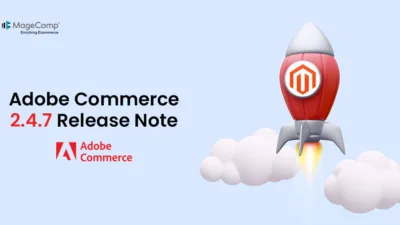No matter the scale at which your store operates at the moment, chances are that international customers are right around the corner. According to statistics, Magento powers 28% of websites across the internet. This means that your site has the upper hand in terms of plugins, extensions and overall community support when it comes to CMS optimization.
One of the best ways to cater to an international audience is to localize your content into popular global languages. Let’s take a look at several tips, tricks and extensions which can help you reach a worldwide market through your Magento store.
- Enable Language Packages:
Chances are that your site operates in the English language at the moment. While this is the proverbial lingua franca of today’s internet, you should still look for ways to expand your reach further. Language packages in Magento can be enabled by adding strings of code to your live website.
These packages, when installed correctly, can add premade language translations to basic navigation and UI elements. They also enable you to manually translate your content if you have an in-house translator or a native speaker ready to pitch in. If you don’t however, you can refer to other Magento extensions or a professional third-party localization platform.
- Inherent Language Modules:
Once your Magento site realizes that multiple language packages are live, you can then build on those foundations. Language inheritance represents separate modules which can be used to further translate your site’s content by hand.
As we’ve mentioned before, platforms such as The Word Point are perfectly suited to localize any volume or type of content on a Magento store. You should be careful not to override the initial language package you have already installed beforehand however.
For example, if the rudimentary Russian language package is added to your site, the language inheritance should branch out from that baseline. If both packages are enabled in unison, they will override one another and you will be left with a partial localization which leaves a bad taste in the visitors’ mouth and your SEO.
- IP Redirect Efforts:
Depending on the nature of your Magento store and the products or services you have on offer, your target demographic will vary drastically. For example, elderly visitors and less tech-savvy users might not know how to change their site languages manually.
This can lead to potential loss of traffic and revenue which would have otherwise benefited your storefront. It’s here where extensions start to matter more than ever, especially when it comes to redirecting your traffic. Countries like India have special online shopping laws which dictate e-commerce optimization specific to their country. You don’t need to skip out on a large portion of potential customers and instead opt for a GST Magento extension which corresponds with their local rules and regulations.
Visitors from Germany should see the German store and those from France should be able to do so in French as soon as they click on your link. Similarly, the geo IP price extension can further localize your content for better UX by allowing visitors to see price points in their local currencies. This can be done through simple yet effective IP address redirect extensions which will help you localize your site even further for better user experience.
- Worldwide Shipping Costs:
If your business is based in Greece, shipping a product to the UK won’t cost the same as if you did so to China or the US. It’s very important that your visitors are presented with correct shipping costs for any item they might want to buy from your Magento store.
This won’t affect your business if your store is based around online goods and services, however. Make sure to take shipping cost extensions into consideration to further localize your content and allow international visitors to see the correct prices for their orders in a timely fashion.
- Chatbots as Affordable Support:
No matter how efficient or high-quality your Magento store and products are chances are that people will have issues once in a while. It’s not viable to hire real-life customer agents for each language you feature on your website.
Instead, you can opt for chatbot extensions in order to fill the gap between you and your customers. Chatbots are rudimentary AI algorithms capable of basic communication. They can collect data 24/7 and allow you (and your coworkers) to review the gathered queries whenever you see fit.
This is a great solution for ongoing customer support, especially given the time and resources you will have to allocate to handling new orders and shipping products across the world (if that is the nature of your company’s business).
- A Comprehensive Checkout:
As we’ve mentioned before, catering to people of different cultures, beliefs and lifestyles can be tricky, especially in digital sales. One of the most important parts of your website is the checkout page as it allows visitors to review their orders before committing to a purchase.
You should add as many details about potential hidden costs, VAT, tax and other expenses to your checkout page. It’s also a good idea to add a small loyalty incentive or a discount coupon which will help the visitor solidify their purchase. Don’t make the mistake of omitting region-specific costs in terms of shipping regulations, customs laws and other details which are out of your hands.
That way, you will be upfront about your business and abilities to ship to certain regions without losing credibility and accepting payments for things you cannot do. Again, these rules vary according to the nature of your products and services, so make sure to tread lightly when you optimize your Magento store for the international market.
- SEO your Store:
Lastly, SEO should be at the top of your optimization list when it comes to localization. Every language you feature on your Magento store will have different popular keywords and phrases. You can use SEO tools and platforms to further optimize your content for better search engine ranking.
That way, your store is bound to show up in Google, Yahoo or similar search engine whenever someone looks for a product you have on your store. Failing to add language-specific keywords to your site will make the localization process much less effective than it could otherwise be. If done correctly, keyword optimization of each language on your site will help you attract more organic traffic and subsequent customers as a direct result.
In Summation
Once your site is successfully localized, you should apply the same level of care and optimization to every piece of content that comes after. New products, services, blog posts and other pages should be optimized in the same way as the rest of your Magento store.
That way, you will keep increasing your search engine ranking and be visible to more and more potential customers. While it does require patience and energy, content localization can transform the way your business operates online, given the versatile and user-friendly nature of Magento and its extensions.












